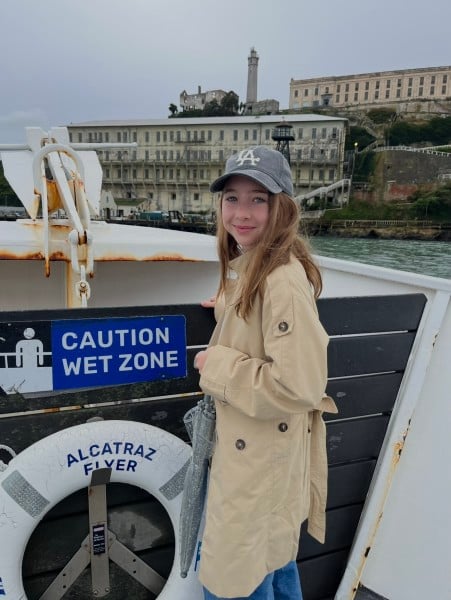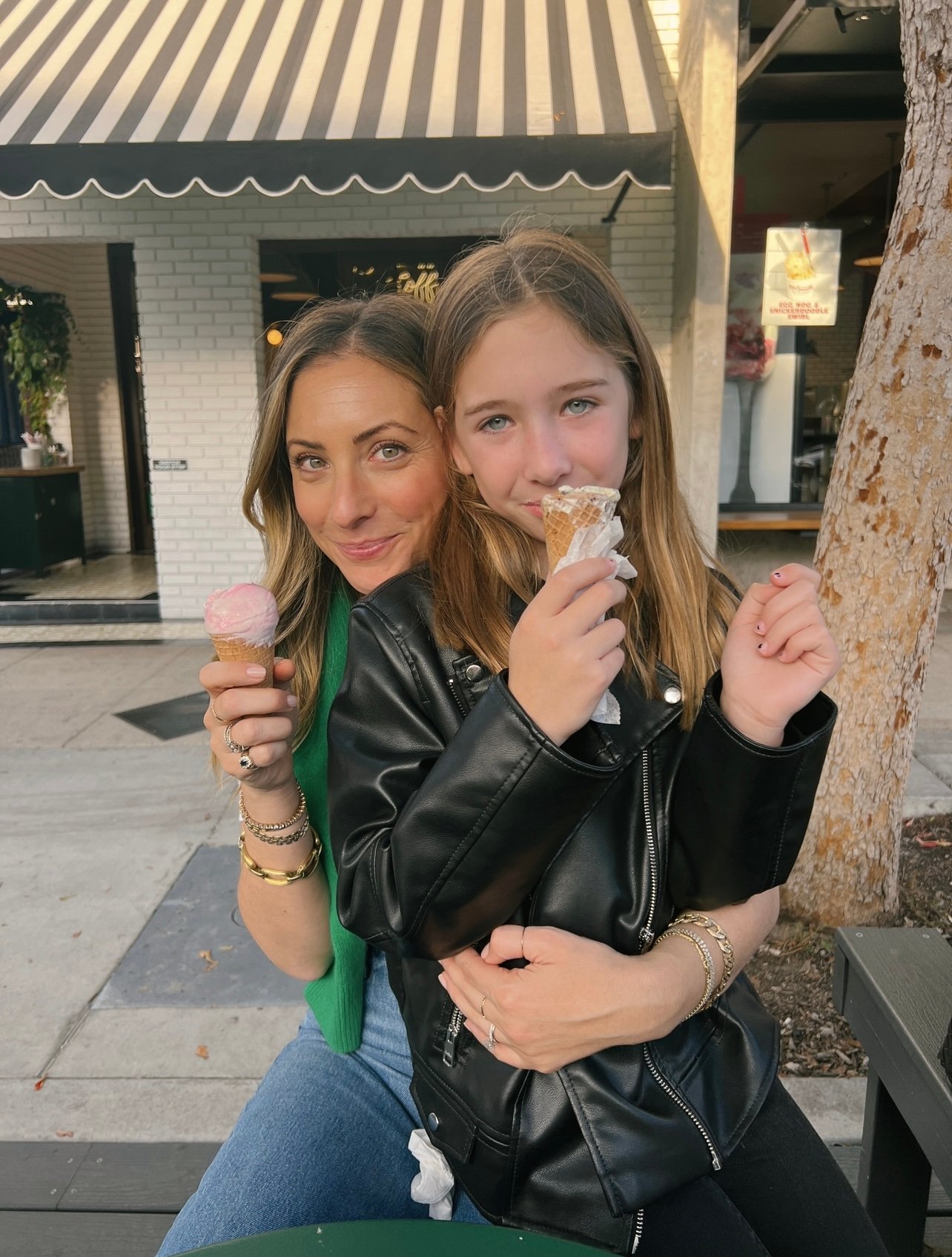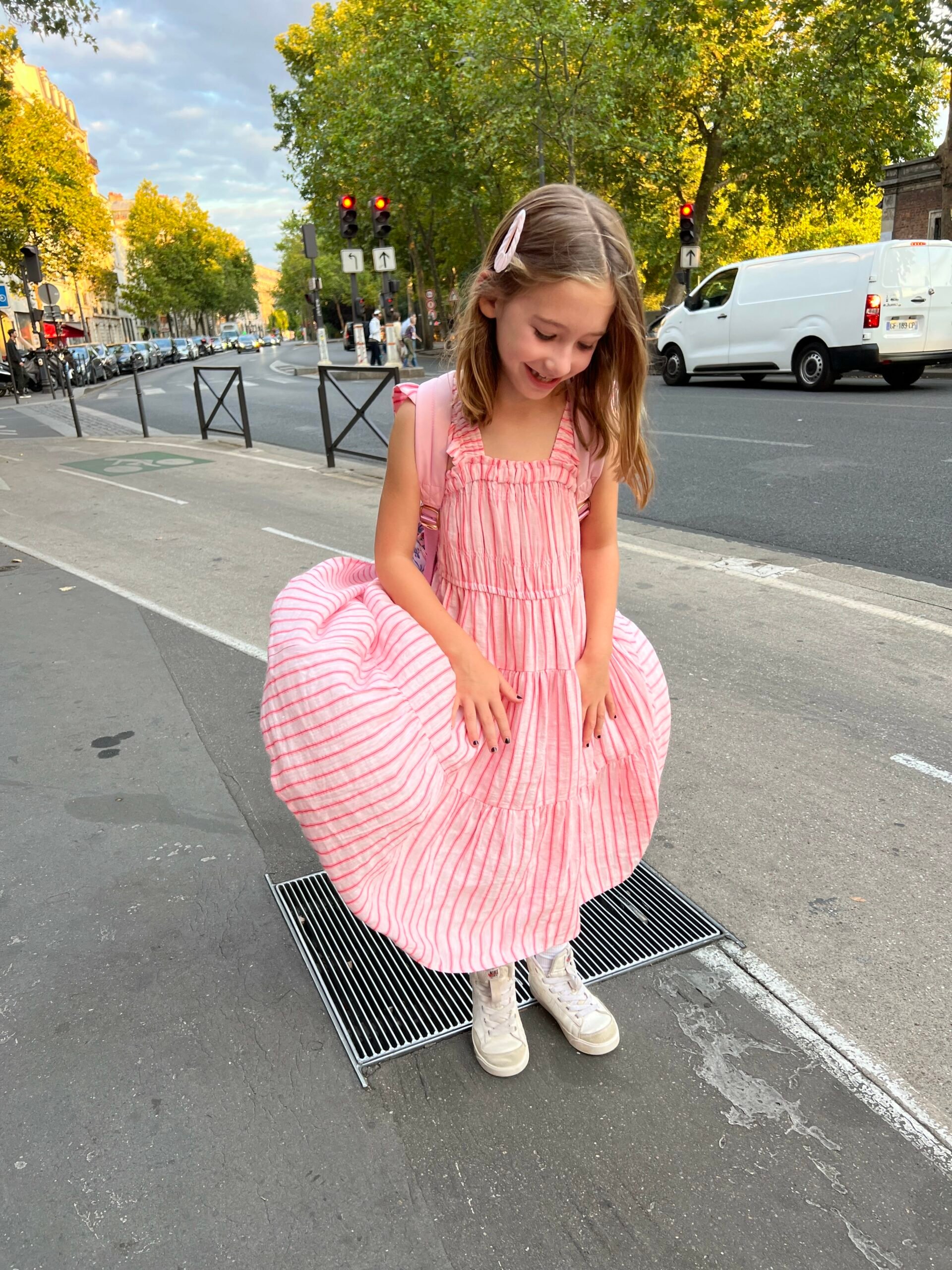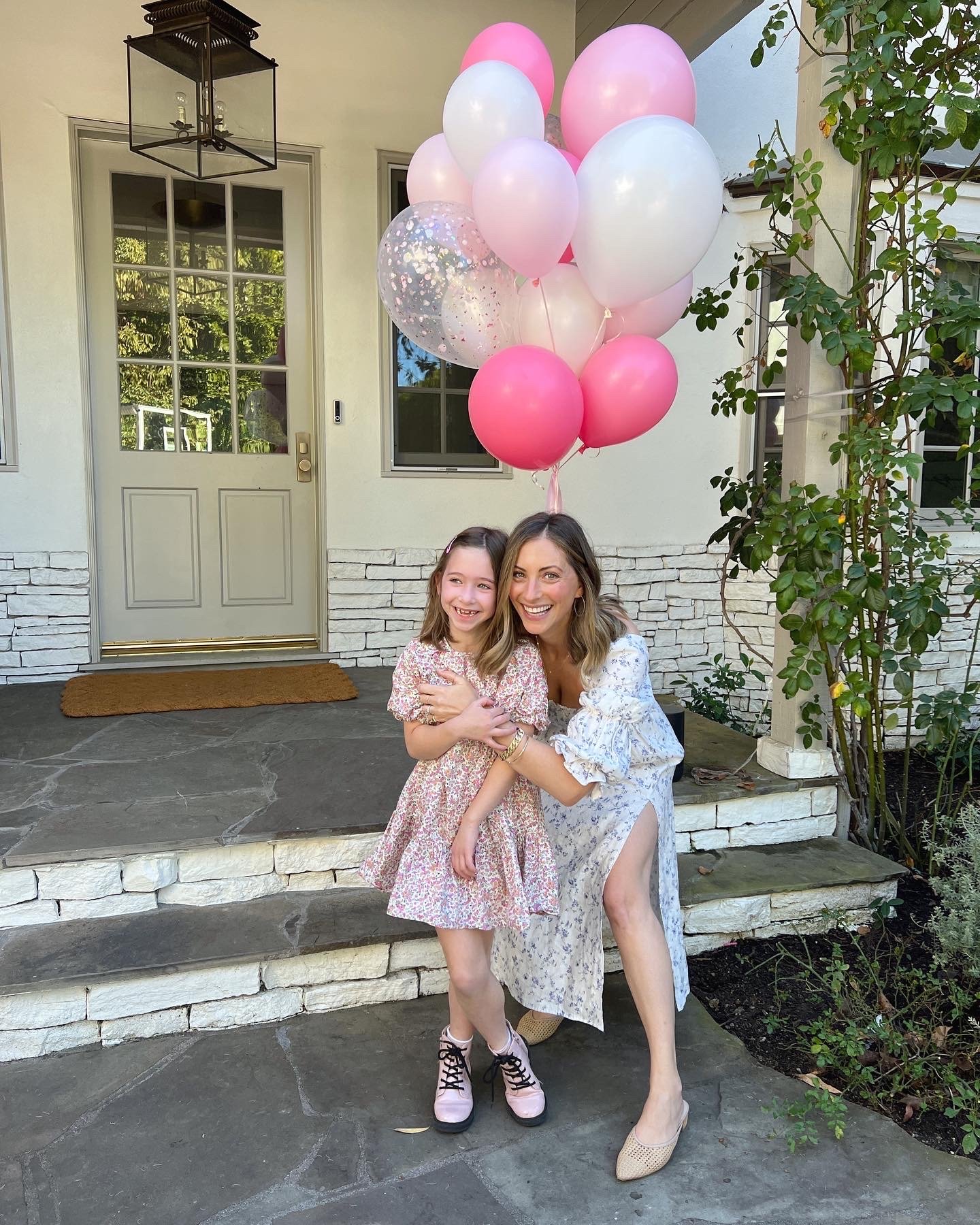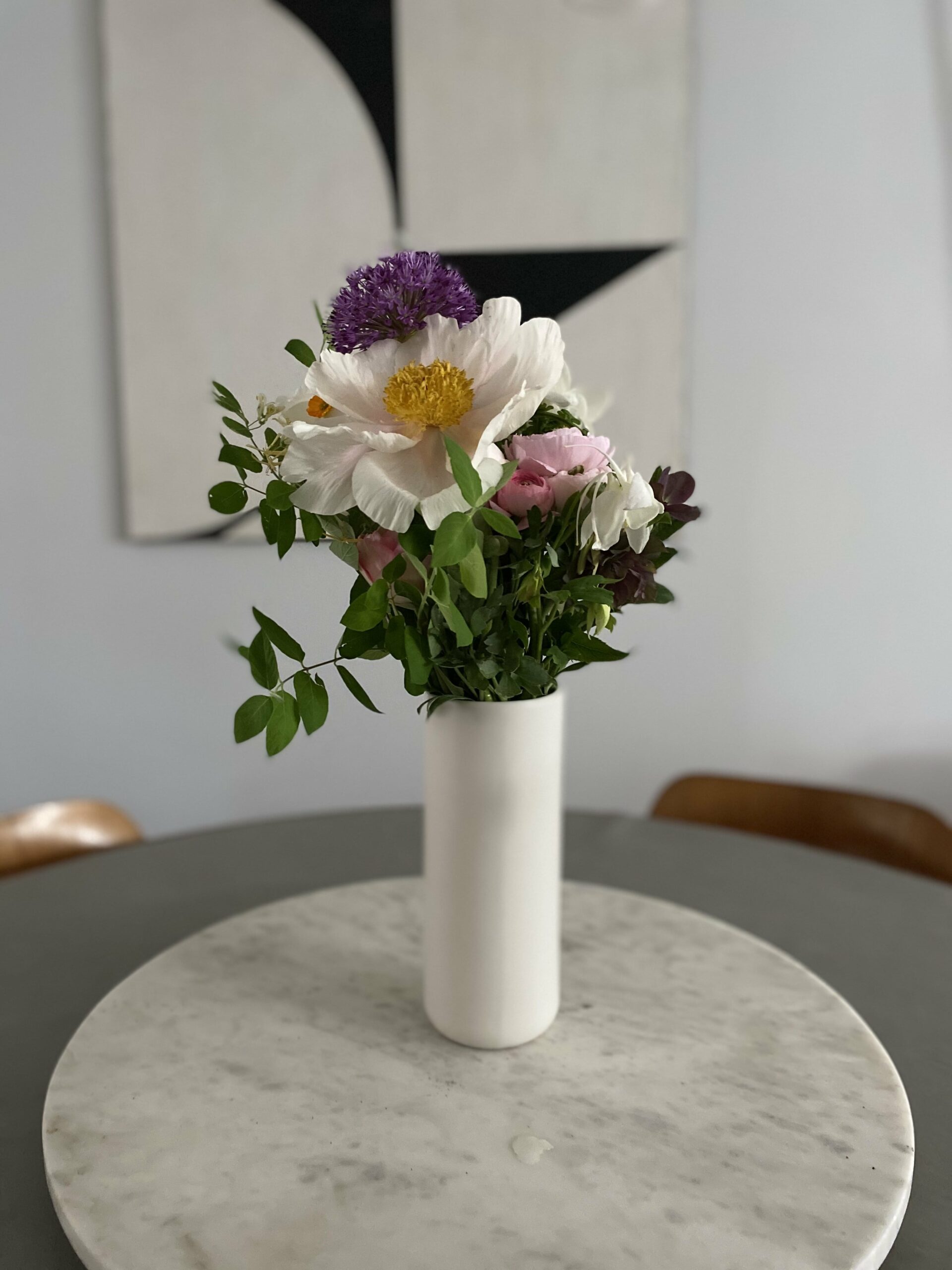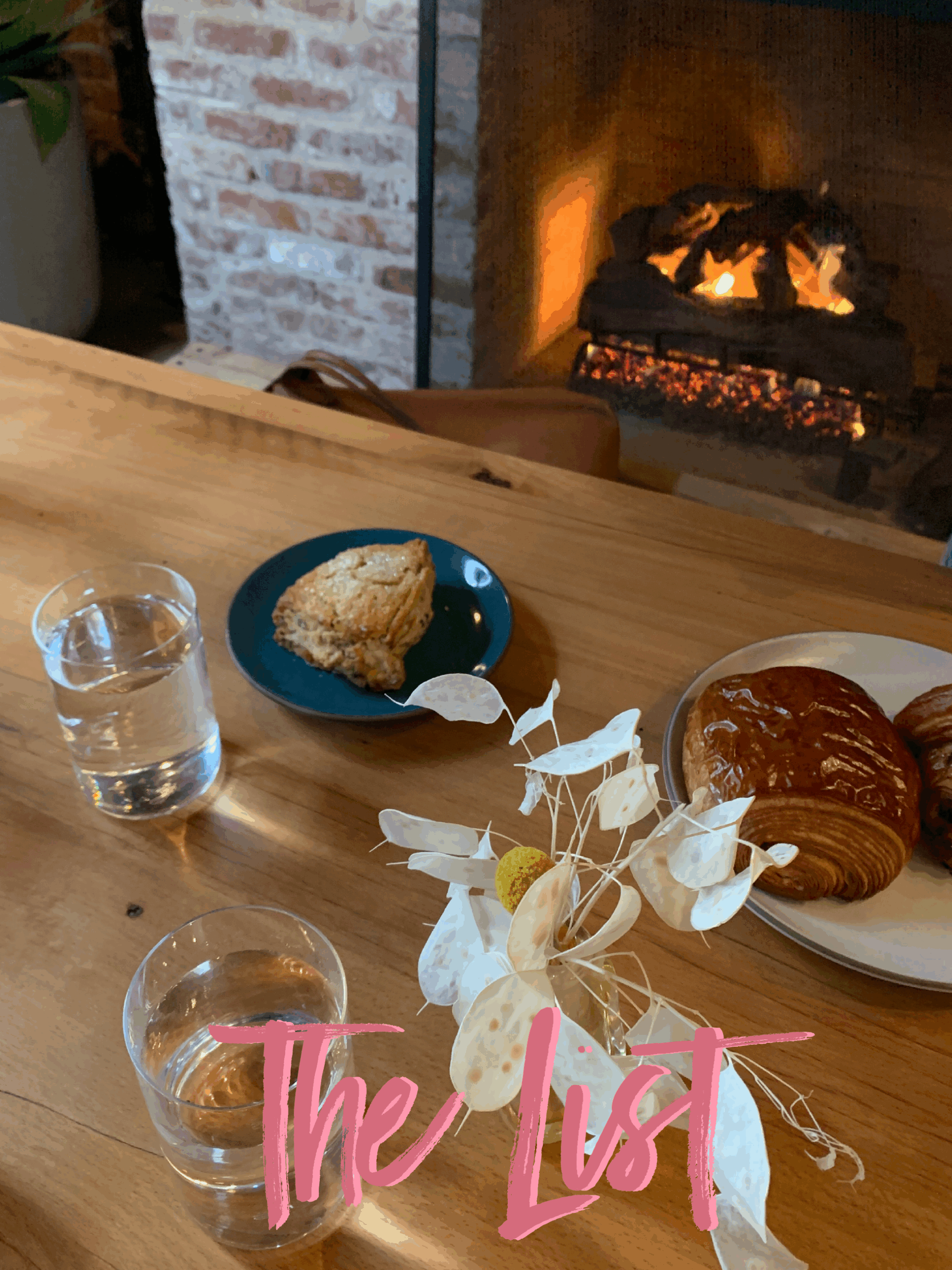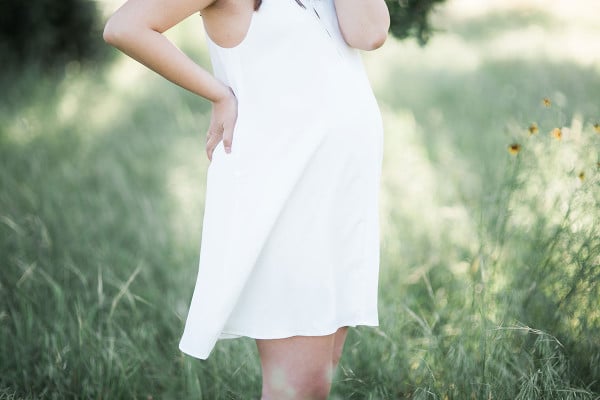
My daughter, my Wonder Girl, made her way into the world in the middle of an unruffled summer night in Texas. In the dark, my husband and I drove to the hospital past dimmed street lights and roads that curved like a hip. I could hardly see it, but I traced the landscape in my mind, reaching for my muscle memory of the city’s dips and peaks, fields where bluebonnets carpeted the ground in the spring. Depending on where you lived in Austin, it could be flat as a drawl or hilly enough to give you popped ears.
I rested my hand over the great hill of my own body where my daughter tumbled and kicked, demanding freedom. For months, I’d felt her within me, as sure as a limb. Her hiccups woke me in the morning. At night, I stroked what I thought could be her back. Sharing a body with her made me feel expansive with imagination, yet locked into safety, like a mama bear peering out of her cave. My husband and I had longed for Wonder Girl for years, shelving our heart-sunk disappointment each month she didn’t appear, yet now that she was almost in front of us, I already missed the sensation of bearing her.
Moments after Wonder Girl was born, weighed, and cleaned, the nurses rested her on my bare chest. I remember thinking that she looked like a foal in a nature painting, heavy-eyed and curled loaf-like in the sun. I was hesitant with my touch, afraid of hurting her.
Go on, mama, said the head nurse. Put your arms around her. She needs you.
I did, and I never really let go.

Doctors name skin hunger as the biological craving for physical contact. The release of oxytocin from skin-to-skin contact fills you with a sense of wellbeing. So profound is our collective need for touch that a lack of human contact often results in a feeling akin to grief. Skin hunger is particularly strong in newborns; without touch, babies can die. I imagine the transition out of the womb, into a strange and light-filled world. How they must long for warmth and darkness, the steady beat of a heart close to theirs. Skin hunger is, perhaps, a desire not only to touch, to extend ourselves, but to retract. To rewind to a place of ancient safety and unceasing contact.
Days after giving birth, the doctor who performed my C-section walked us out of the hospital and pointed toward my scar, now hidden beneath my dress.
I hid it, so you’ll hardly ever know it was there. You can even wear a bikini.
I was fascinated by my scar. It represented a door from a time before Wonder Girl, to one after her. When that door shut, I was bereft, placing my hand on my belly, expecting a curved dome where there was none. In her early months, Wonder Girl didn’t sleep unless my husband or I was holding her. We bounced with her on a yoga ball, then shifted to her rocking chair, taking turns catching a couple hours of sleep while the other rocked her. Time slogged. All that seemed to exist was our little family, waking and sleeping and moving as one unit.
I tried to read during those vigils, but found myself distracted by the feeling of holding Wonder Girl. Though my arms sometimes ached, they were filled by her weight. How to describe the sharp, specific emotion of cradling a newborn? I was wise in joy and steady in grief. Every moment that passed felt like a precious, infinitesimal loss; a moment strung and released like silk in the wind.
As night poured through the window, I studied my new baby. The sweat from her head slicked my shoulder. Her breath sighed, a whisper I could never catch. Each time I shifted, her eyes fluttered open. I imagined our hearts as a set of connected cup telephones, sending signals down a taut string. We danced around one another, investigating our newly formed bodies and all the spaces between them.

Wonder Girl crawled early; not, we believe, through any particular sense of coordination, but because she wanted to get to where we were. She liked to play with one foot balanced on my husband or me, as if anchoring herself to our bodies. When I tried to leave the room, she scooted after me with ambitious pulls, her hands smacking against the tiled floors as she crawled. She was ferocious in her love and yet so casual. While we read books, she rested against me as if I were a chair, resettling herself with annoyance if my body didn’t conform perfectly to hers. There were no qualms about tugging at my hair for attention, or grabbing my earrings, or planting a wet, open-mouthed kiss on me. She took my body for granted, in the way that only young children can. If I laid next to her while she slept, she kicked me throughout the night, her foot digging into my rib until I edged away. In her sleep, she sensed my leaving and pulled me back towards her with a grip stronger than I would have imagined.
Wonder Girl walked a month or so before she turned one. She fell often, but she enjoyed the attempt, her enthusiasm usually much greater than her sense of balance. When we enrolled her in toddler swimming classes, the last exercise was to release her to the swim instructor, propelling her body through the water like a sputtering submarine. It wasn’t swimming so much as gliding. Even though the instructor was only a couple feet away, I wanted to grab Wonder Girl back into my arms. Float us back home.
Wonder Girl celebrated her fourth birthday this summer with a giant inflatable water slide and bounce-house combo, its garishness both an affront and a celebration. She shrieked as she jumped, then raised her hands above her head when she barreled down the slide, like it was a roller coaster. When the slide deposited her into the dirt next to the pool, I held my breath, expecting her to run to me in tears. Instead, she shrugged and hopped back in the bounce house. These days, she exalts in her independence.
When we plop down next to her to play, she says—ever so politely yet firmly—I just want some alone time, okay?
She wants to put on her own shoes and make her own peanut-butter-and-jelly sandwiches. There’s no time for cuddles before bed; we are shooed out as soon as the songs are finished. The old rituals condense and vanish completely, replaced by her desire to do it herself. My pride in her swells like a balloon on the verge of popping. She’s just so capable. Yet the grief prowls close. Wonder Girl will be our only child. We live in the moment as much as we can, with as much joy as we can squeeze out of it, but we are chased by the knowledge that we won’t have another chance at parenthood.
A friend once told me that she had an awakening in the drop-off line, observing the other parents in front of her daughter’s preschool.

I looked up and all of a sudden, we were all different. I couldn’t figure out what it was. Then I realized: we were taking care of ourselves. Brushing our hair. Getting out of pajamas. Everyone had finally gotten a good night’s sleep. Our kids didn’t need us as much, so we could return to looking after ourselves.
What is my body without Wonder Girl’s? It’s still marked topography. Scars that run criss-cross on my shoulder, knees ashen and whittled from crawling after her on the carpet. Burns and bruises, stretch marks trickling like newly formed rivers. My daughter’s initial is tattooed on my wrist; her name inked on the skin above her father’s heart. She is literally written on the landscape of our bodies. In the most intimate kinds of love, we shape and reshape each other, like clay that never hardens.
I think about my friend in the drop-off line and all the fresh, well-tended parents she talked about. I understand that looking after myself will require a new sense of vigilance. A small unshouldering, then a reclamation. For as Wonder Girl comes into her own, we cross the threshold of a new door. I come into my own too.

My body without hers is foreign but familiar, like a landmark displaced on a map. I can find my way again, if I follow the crumbs back. One night, while my husband puts Wonder Girl to bed, I draw myself a bath and light candles. I bring in a book. Drop in one of those expensive bath bombs that fizz like Champagne. I hear nothing but silence, a house put to order, a to-do list checked and chucked. I sink into the hot bath, covering myself up to my ears the way a child would. I can almost hear my own heartbeat in the vibration of the water.
Mommy?
Wonder Girl stands at the edge of my tub, rubbing her eyes. Her nightgown is growing short on her. It reveals a bandaged knee from a recent fall. We’d kissed and anointed the knee, and though it’s nearly healed, she insists on wearing the bandage still, more as a badge of her bravery than anything else.
Can I give you one last hug? she asks.
The water drips down my face and onto hers as I lean over. Her fingers tangle in my seaweed-wet hair. As I press myself to her, I leave damp spots on her shoulder. For a moment, just before we uncleave, we are one body together again.
